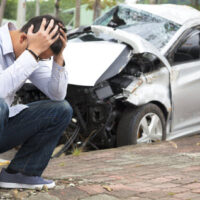Can a City be Held Liable for a Poor Road Design?

Most people know that when they are injured in a collision with a negligent motorist, they may be able to collect compensation from that individual or his or her insurer. However, not all accidents are the result of a motorist’s failure to use care when driving, but can actually be attributed to the poor condition of the road itself. Unfortunately, these types of accidents occur at an alarming rate across the state, as Florida is home to a number of poorly designed roadways and intersections.
Although it is possible to hold cities legally accountable for their failure to ensure that roadways are properly designed, constructed, and maintained, doing so can be difficult. This is especially true for those without legal representation, so if you were recently injured in an accident and believe that it was at least partially due to a poor road design, it is important to contact an experienced Fort Lauderdale auto accident lawyer who can help you hold the at-fault entity responsible.
When Can a City be Held Liable for an Accident?
Cities can and do contribute to car accidents by failing to use reasonable care in maintaining their roadways. For instance, road defects like potholes, crumbling asphalt, and construction debris, can all result in car accidents. Improper road designs, however, tend to have even more troubling results, as they are much more difficult to remedy, requiring more than a simple fix, such as the removal of roadside foliage.
While cities are generally immune from lawsuits filed by the public, they can be held legally accountable for their negligence in certain cases, including when they, or an employee, fail to use reasonable care in designing their roads, which could include:
- Designing a road with an overly sharp curve;
- Designing a roadway that does not provide a clear view of traffic;
- Failing to provide guardrails and barriers along dangerous stretches of the road;
- Failing to post adequate warning signs;
- Providing insufficient road drainage;
- Failing to account for roadside hazards, such as mud and rockslides; and
- Failing to install traffic signals.
When these types of mistakes cause a serious accident and can be attributed to a failure to use the best available design and engineering standards or to recognize and study traffic safety risks, then the injured party could have standing to file suit against the city itself.
Filing a Lawsuit Against the City
Filing a claim against a municipality is much different than suing a private citizen, as the parties are required to meet special deadlines and provide proper notice of their claim. For instance, in Florida, a person can only file a negligence-based claim against the government if he or she submits a notice of claim to the entity within six months of the accident. Furthermore, even if a plaintiff successfully files suit against a government agency, he or she may face a cap on how much they can collect in damages.
Experienced Car Accident Lawyers
Rather than trying to handle your car accident claim on your own, please call the dedicated Fort Lauderdale auto accident attorneys at Boone & Davis. You can schedule a free case review with a member of our team by calling 954-566-9919 or by completing one of our brief online contact forms.
Resource:
leg.state.fl.us/statutes/index.cfm?App_mode=Display_Statute&URL=0700-0799/0768/Sections/0768.28.html
https://www.booneanddavislaw.com/how-insurers-value-auto-accident-claims/
